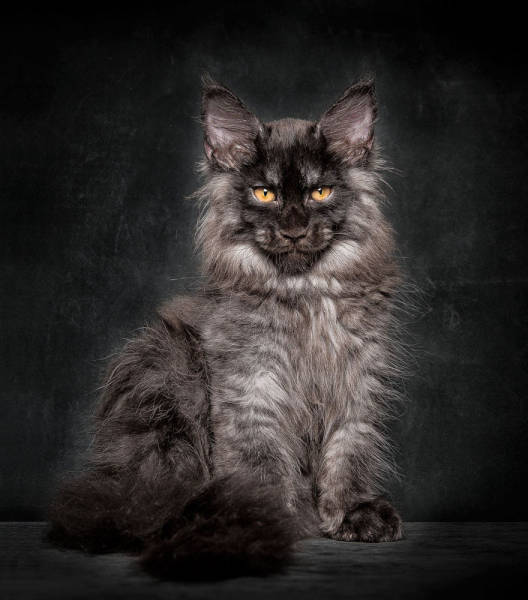|
|
Maine Coon Cat
|
Health
Pet insurance data obtained from a study during years 2003–2006 in Sweden puts the median lifespan of the Maine Coon at >12.5 years. 74% lived to 12 years or more and 54% lived to 16.5 years or more. Maine Coons are generally a healthy and hardy breed and have adapted to survive the New England climate. The most severe threat is feline hypertrophic cardiomyopathy (HCM), the most common heart disease seen in cats, whether pure bred or not. In Maine Coons, it is thought to be inherited as an autosomal dominant trait. Middle-aged to older cats as well as males are thought to be predisposed to the disease. HCM is a progressive disease and can result in heart failure, paralysis of the hind legs due to clot embolization originating in the heart, and sudden death. A specific mutation that causes HCM is seen in Maine Coons for which testing services are offered. Of all the Maine Coons tested for the MyBPC mutation at the Veterinary Cardiac Genetics Lab at the College of Veterinary Medicine located at Washington State University, approximately one-third tested positive. Not all cats that tested positive will have clinical signs of the disease and some Maine Coon cats with clinical evidence of hypertrophic cardiomyopathy test negative for this mutation, strongly suggesting that a second mutation exists in the breed. The HCM prevalence was found to be 10.1% (95% CI 5.8 -14.3 % ) in this study.
Another potential health problem is spinal muscular atrophy (SMA), another genetically inherited disease which causes the loss of the spinal-cord neurons which activate the skeletal muscles of the trunk and limbs. Symptoms are normally seen within 3–4 months of age and result in muscle atrophy, muscle weakness, and a shortened life span. A test is offered to detect the genes responsible for SMA.
Hip dysplasia is an abnormality of the hip joint which can cause crippling lameness and arthritis. The cats most commonly affected with hip dysplasia tend to be males of the larger, big-boned breeds such as Persians and Maine Coons. This is similar to the situation with dogs, but the relatively smaller size and weight of cats frequently results in symptoms that are less pronounced. X-rays submitted to the Orthopedic Foundation for Animals (OFA) between 1974 and 2011 indicates that 24.3% of Maine Coons in the database were dysplastic. The Maine Coon is the only cat breed listed in the database.
|
|









